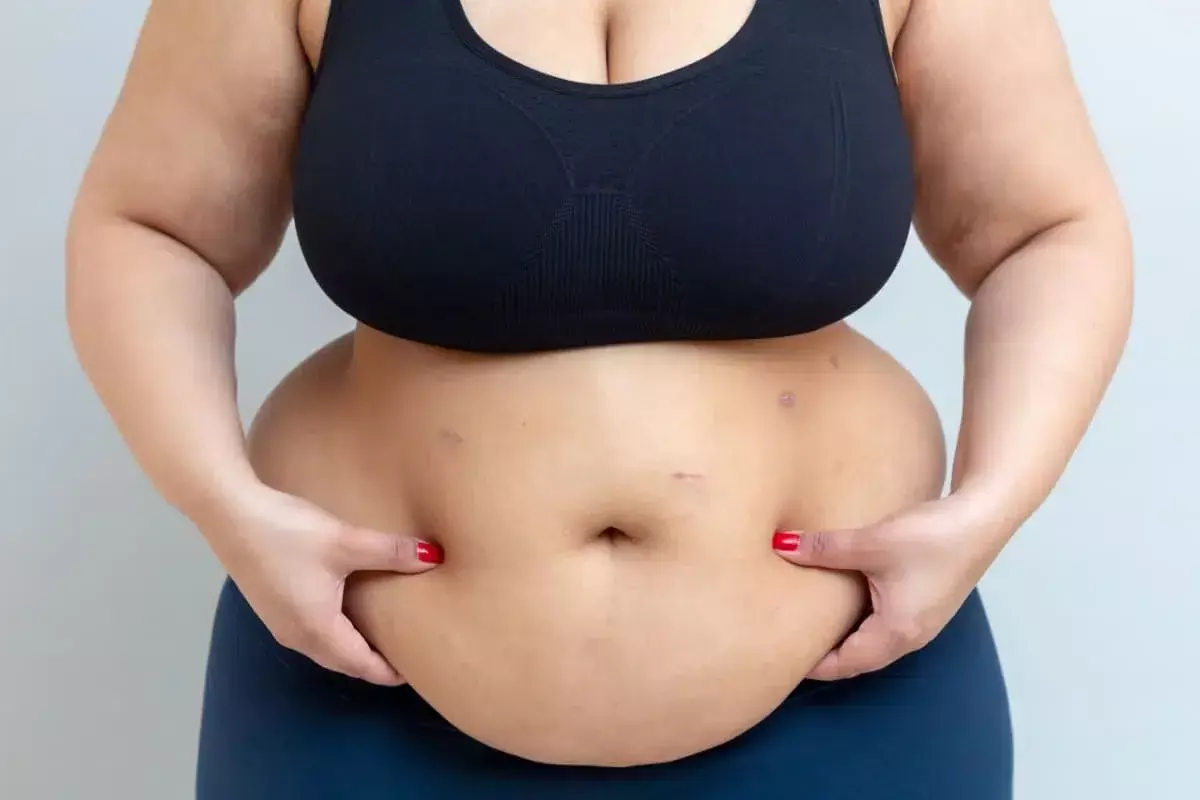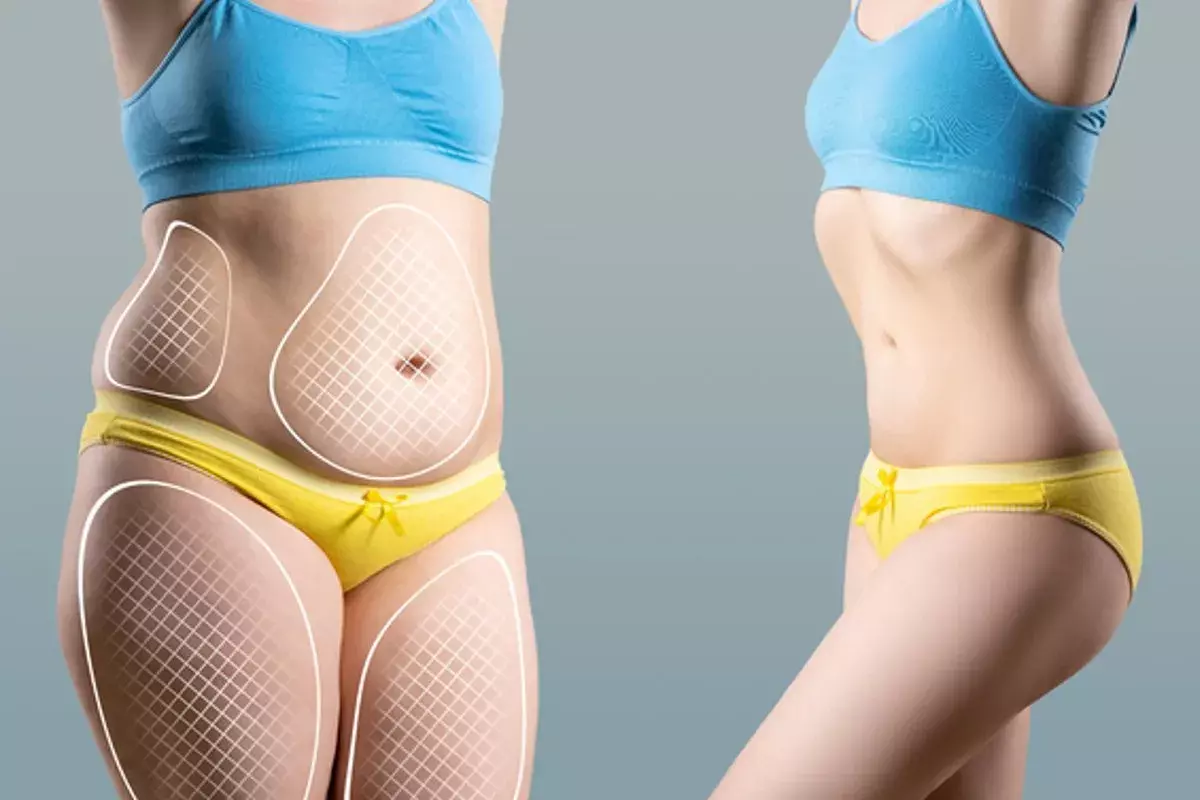
Hypertension is a big health worry for women. It affects different places and age groups differently. At Liv Hospital, we get how complex high blood pressure is and its effects on women’s health. We know many things like genes, hormones, lifestyle, and environment play a part in it.
Learn what causes high blood pressure in women and how to manage it safely.
As women get older, they face a higher risk of high blood pressure. It’s key to know what causes it. This way, we can offer personal care and advice to help women control their blood pressure.
Key Takeaways
- Hypertension is a major health concern for women worldwide.
- A combination of genetic, hormonal, lifestyle, and environmental factors contributes to high blood pressure in women.
- The risk of developing hypertension increases with age.
- Understanding the factors that contribute to high blood pressure is key for effective management.
- Liv Hospital provides patient-centered care and international standards for managing hypertension.
Understanding Blood Pressure and Hypertension in Women

Hypertension, or high blood pressure, is a big health issue for women. It’s caused by hormones, genes, and lifestyle. Knowing about blood pressure is key to managing it well.
How Blood Pressure Works
Blood pressure is the force blood pushes against artery walls as it moves. It’s shown as two numbers: systolic (heart beat) and diastolic (between beats). A normal reading is about 120/80 mmHg.
Blood pressure measurement is very important. It tells us about heart health. We measure it in millimeters of mercury (mmHg).
Normal vs. High Blood Pressure Readings
Hypertension is when readings are ≥140 mmHg systolic or ≥90 mmHg diastolic on both days. The American Heart Association defines blood pressure categories:
| Blood Pressure Category | Systolic mmHg | Diastolic mmHg |
| Normal | Less than 120 | Less than 80 |
| Elevated | 120-129 | Less than 80 |
| Stage 1 Hypertension | 130-139 | 80-89 |
| Stage 2 Hypertension | 140 or higher | 90 or higher |
Why Women’s Blood Pressure Concerns Differ from Men’s
Women’s blood pressure issues are different from men’s. Hormones, pregnancy, and menopause play big roles.
“The hormonal changes during menopause can affect blood pressure. It’s important for women to watch their blood pressure during this time.”
Knowing these differences helps in giving care that fits each gender.
By understanding what affects blood pressure, we can manage hypertension better. This improves heart health in women.
What Causes High Blood Pressure in Women: An Overview

It’s important to know why high blood pressure happens in women. High blood pressure, or hypertension, is a big health issue for women all over the world. Many things can lead to it.
The Prevalence of Hypertension in Women
Studies show women are more likely to get high blood pressure after menopause. This makes it key to watch blood pressure closely during this time. The rate of high blood pressure varies by region and income level.
The World Health Organization (WHO) says the Eastern Mediterranean Region has the highest rate of high blood pressure, at 38%. This shows how important it is to look at health data by region to understand the global impact of high blood pressure.
Short-term vs. Long-term Blood Pressure Influences
Blood pressure can change for short or long periods. Short-term changes happen due to stress, exercise, or some medicines. Long-term changes can lead to chronic high blood pressure.
Knowing the difference between short-term and long-term changes is key. Short-term changes might need quick fixes, but long-term ones need lasting changes in lifestyle and sometimes medicine.
Risk Assessment for Female Patients
Figuring out a woman’s risk for high blood pressure involves looking at several things. These include age, family history, lifestyle, and current health. Doctors use this info to spot women at higher risk and start prevention or early treatment.
By understanding why high blood pressure happens and looking at each person’s risk, we can lower the number of women with high blood pressure. This helps improve heart health for everyone.
Factor 1: Hormonal Influences on Women’s Blood Pressure
Hormonal changes greatly affect blood pressure in women. It’s key to understand how hormonal shifts impact blood pressure.
Menopause and Estrogen Decline
Menopause brings a drop in estrogen, which can change blood pressure. Estrogen protects the heart, and its decrease can raise blood pressure. Women in menopause should watch their blood pressure closely.
The transition to menopause, or perimenopause, can last years. It’s marked by big hormonal swings. These changes can impact blood pressure, so women should keep an eye on it during this time.
Monthly Hormonal Fluctuations
Monthly hormonal changes can also affect blood pressure. The ups and downs in estrogen and progesterone can change blood pressure. Knowing these changes can help women manage their blood pressure better.
Hormonal Conditions That Affect Blood Pressure
Hormonal conditions like polycystic ovary syndrome (PCOS) can also raise blood pressure. Women with PCOS face a higher risk of high blood pressure because of hormonal imbalances. Women with such conditions should work closely with their healthcare provider to keep their blood pressure in check.
Factor 2: Genetic and Family History Considerations
Family history and genetics are big factors in high blood pressure. Knowing about these can help people manage their blood pressure better.
Hereditary Risk Patterns
Studies show that people with a family history of high blood pressure are more likely to get it too. This is because they inherit genes that affect blood pressure.
Genetic predisposition can change how the body works, including blood pressure control. For example, some genes can mess with how the kidneys handle sodium, which is key for blood pressure.
Race and Ethnicity Factors
Race and ethnicity also matter a lot for blood pressure risk. Some groups are more likely to get high blood pressure because of their genes.
- African Americans face a higher risk of high blood pressure than others.
- Genes and environment together increase this risk.
- Knowing this helps doctors create better treatment plans.
Do Some People Have Naturally Higher Blood Pressure?
Yes, some people might naturally have higher blood pressure because of their genes. This doesn’t mean they’ll definitely get hypertension, but it raises their risk.
| Risk Factor | Description | Impact on Blood Pressure |
| Family History | Individuals with a family history of hypertension | Increased risk of developing high blood pressure |
| Genetic Predisposition | Genetic traits that affect blood pressure regulation | Can lead to higher blood pressure levels |
| Race and Ethnicity | Certain racial and ethnic groups are more prone to hypertension | Increased risk due to genetic and environmental factors |
Understanding genetic and family history factors helps people work with their doctors. Together, they can make plans to manage blood pressure effectively.
Factor 3: Medication and Medical Treatments
Certain medications and treatments can change blood pressure. Women should know how different drugs affect their heart health.
Birth Control Pills and Hypertension Risk
Birth control pills are common but can raise blood pressure. Estrogen pills, in particular, may increase hypertension risk. Women on hormonal birth control should have their blood pressure checked often.
Hormone Replacement Therapy Effects
Hormone replacement therapy (HRT) helps with menopause symptoms. But, it can also affect blood pressure. The impact depends on the hormones used, dosage, and individual factors.
Over-the-Counter Medications That Raise Blood Pressure
Some over-the-counter (OTC) drugs can increase blood pressure. NSAIDs, decongestants, and cold meds are examples. Women should be careful with these and talk to their doctor if worried about blood pressure.
What Can Bring Blood Pressure Up: Prescription Drug Side Effects
Prescription drugs can also raise blood pressure. Some antidepressants, corticosteroids, and ADHD meds can do this. Women should talk to their doctor about possible side effects.
To understand how medications affect blood pressure, let’s look at this table:
| Medication Type | Potential Effect on Blood Pressure | Recommended Action |
| Estrogen-containing birth control pills | May increase blood pressure | Regular blood pressure monitoring |
| Hormone Replacement Therapy (HRT) | Variable effect depending on type and dosage | Discuss risks and benefits with healthcare provider |
| NSAIDs and decongestants | Can cause blood pressure to rise | Use with caution, consult healthcare provider if concerns |
| Certain antidepressants and corticosteroids | May increase blood pressure | Monitor blood pressure, discuss side effects with healthcare provider |
Knowing how different drugs affect blood pressure helps women manage their heart health. It’s important to work with a healthcare provider to avoid risks and ensure safe treatment.
Factor 4: Pregnancy and Reproductive Health
Pregnancy and blood pressure have a complex relationship. Many factors can lead to high blood pressure during this time. Pregnancy brings big changes in a woman’s body, affecting how blood pressure is managed.
Gestational Hypertension Development
Gestational hypertension is high blood pressure that starts after 20 weeks of pregnancy. It can cause serious problems if not treated right away. We’ll look at the risks and what it means for your health.
Things like a history of high blood pressure, kidney disease, and being overweight can increase your risk. Knowing these factors helps catch and manage gestational hypertension early.
Preeclampsia: Immediate and Long-term Risks
Preeclampsia is a serious condition in pregnancy. It’s marked by high blood pressure and a lot of protein in the urine. It can harm both mom and baby if not treated quickly.
Preeclampsia can lead to early birth and babies that are too small. Women who have had it are also at higher risk for heart disease later on.
Post-pregnancy Blood Pressure Concerns
Women who had high blood pressure or preeclampsia during pregnancy are at risk for chronic hypertension after. It’s important to keep an eye on blood pressure after pregnancy to catch and manage hypertension early.
Polycystic Ovary Syndrome and Hypertension
Polycystic ovary syndrome (PCOS) is a hormonal disorder common in women of childbearing age. Women with PCOS are more likely to develop insulin resistance, type 2 diabetes, and high blood pressure.
| Condition | Blood Pressure Risk | Management Strategies |
| Gestational Hypertension | High | Regular prenatal check-ups, lifestyle modifications |
| Preeclampsia | High | Close monitoring, possible early delivery |
| PCOS | Moderate to High | Lifestyle changes, hormonal treatments, monitoring |
It’s key to understand how pregnancy, reproductive health, and blood pressure are connected. By knowing the risks and taking action, women can lower their chance of getting high blood pressure.
Factor 5: Lifestyle Habits That Affect Blood Pressure
Managing blood pressure well means making lifestyle changes. Our diet and exercise habits are key to keeping blood pressure normal. We’ll look at how our lifestyle choices affect our blood pressure.
Dietary Influences on Women’s Blood Pressure
A diet full of salt and lacking potassium can raise blood pressure. Eating more fruits, veggies, and whole grains can help. Reducing sodium intake and incorporating potassium-rich foods like bananas and leafy greens is good.
Physical Inactivity and Sedentary Behavior
Regular exercise can lower blood pressure. But sitting too much can raise it. Doing moderate-intensity exercises like brisk walking, cycling, or swimming for 150 minutes a week is helpful.
Stress Management and Mental Health
Stress can increase blood pressure. Using stress-reducing techniques like meditation, deep breathing, or yoga can help. Keeping good mental health is also key for heart health.
What Can Make Your Blood Pressure Go Up Quickly: Daily Habits
Bad daily habits like eating too much salt, not moving enough, and chronic stress can quickly increase blood pressure. Being aware of these habits and choosing healthier options can help.
Understanding how lifestyle affects blood pressure helps us manage it better. Eating well, staying active, and managing stress are all important for good blood pressure.
Factor 6: Weight and Metabolic Factors
Weight and metabolic health play big roles in blood pressure. The connection between body weight, metabolic syndrome, and high blood pressure is complex. It involves many body processes.
Female-Pattern Body Fat Distribution
Studies show that body fat distribution affects heart health. Female-pattern obesity, with fat around the hips and thighs, is less risky than central obesity. Yet, it raises the risk of high blood pressure and metabolic syndrome.
Metabolic Syndrome in Women
Metabolic syndrome is a group of conditions that increase heart disease and diabetes risk. It includes high blood pressure, high blood sugar, and excess waist fat. Metabolic syndrome is a big risk for high blood pressure, and it’s becoming more common worldwide.
| Component | Criteria for Metabolic Syndrome |
| Waist Circumference | ≥35 inches for women |
| Triglycerides | ≥150 mg/dL |
| HDL Cholesterol | |
| Blood Pressure | ≥130/≥85 mm Hg |
| Fasting Glucose | ≥100 mg/dL |
How Obesity Affects Blood Pressure Mechanisms
Obesity greatly increases the risk of high blood pressure. Obesity leads to insulin resistance, vascular problems, and nervous system activation. Insulin resistance, common in obesity, causes sodium retention and high blood pressure.
Weight Fluctuations and Blood Pressure Stability
Changes in weight can greatly affect blood pressure. Weight cycling, or yo-yo dieting, can make blood pressure more unstable. This can harm heart health.
It’s key to understand how weight, metabolic health, and blood pressure are linked. By focusing on these areas, doctors can help women lower their risk of high blood pressure and heart disease.
Factor 7: Chronic Health Conditions
Many chronic health conditions can lead to high blood pressure in women. These conditions harm overall health and affect the heart. We’ll look at how kidney disease, thyroid disorders, sleep apnea, and autoimmune conditions raise blood pressure.
Kidney Disease and Hypertension Connection
Kidney disease is a big risk for high blood pressure. The kidneys help control blood pressure by managing fluids and hormones. When the kidneys don’t work right, blood pressure can go up.
Thyroid Disorders and Blood Pressure Regulation
Thyroid problems, like too little or too much thyroid hormone, can mess with blood pressure. An active or slow thyroid can upset heart function, changing blood pressure.
Sleep Apnea: A Hidden Risk for Women
Sleep apnea causes breathing pauses during sleep, leading to poor sleep and low oxygen. It’s a big risk for high blood pressure and often missed in women.
Autoimmune Conditions and Hypertension
Autoimmune diseases, like lupus and rheumatoid arthritis, can raise blood pressure risk. The ongoing inflammation from these diseases can harm blood vessels and kidneys, causing high blood pressure.
| Chronic Condition | Effect on Blood Pressure |
| Kidney Disease | Increased risk of hypertension due to impaired fluid balance and hormone regulation. |
| Thyroid Disorders | Disruption of normal cardiovascular function, leading to changes in blood pressure. |
| Sleep Apnea | Increased risk of hypertension due to fragmented sleep and reduced oxygen levels. |
| Autoimmune Conditions | Chronic inflammation affecting blood vessels and kidneys, contributing to high blood pressure. |
What Factors Can Influence Blood Pressure Acutely
Many things can quickly change your blood pressure. Knowing what these are is key to keeping your heart healthy. By being aware, you can take steps to protect your cardiovascular system.
Anxiety and Stress Responses
Stress and anxiety can make your blood pressure go up. When we’re stressed, our body goes into “fight or flight” mode. This releases hormones that make our heart beat faster and blood pressure rise.
One study found that stress can raise blood pressure. Repeated stress can lead to high blood pressure that lasts. Using relaxation techniques like deep breathing or meditation can help manage stress and lower blood pressure.
Dehydration and Electrolyte Imbalances
Not having enough water can also affect your blood pressure. When we lose fluids, our blood volume goes down, and blood pressure drops. But, our body tries to fix this by raising blood pressure.
Electrolytes like potassium and sodium are important for blood pressure. If they’re out of balance, blood pressure can swing up and down. Drinking enough water and keeping electrolytes balanced is vital for blood pressure control.
Caffeine, Alcohol, and Stimulants
Caffeine, alcohol, and other stimulants can quickly change your blood pressure. Caffeine makes your heart work harder and blood vessels narrower. Alcohol’s effect on blood pressure varies, but too much can raise it.
Other substances, like some medications and drugs, can also increase blood pressure.
What Will Raise Your Blood Pressure Immediately
Some things can quickly raise your blood pressure. Drinking a lot of caffeine or using certain stimulants can do this. A study showed that caffeine can increase blood pressure, more so in people who don’t usually drink it. Knowing these effects can help you make better choices about what you do and what you consume.
In summary, many factors can quickly change your blood pressure. These include stress, dehydration, and certain substances. By understanding and managing these, you can keep your blood pressure healthy and lower your risk of heart disease.
Age-Related Blood Pressure Changes in Women
The risk of high blood pressure goes up with age for women. This is because of stiffening arteries. As women get older, their bodies go through changes that can affect their blood pressure.
Blood Pressure Trends Across a Woman’s Lifespan
Blood pressure in women changes over their lifetime. It’s influenced by hormones, blood vessels, and lifestyle. In their reproductive years, women usually have lower blood pressure than men. But this difference gets smaller as they get older.
A study in the Journal of the American Heart Association found something interesting. By age 60, more women than men have high blood pressure.
“Hypertension in women is a significant public health concern, after menopause.”
Journal of the American Heart Association
| Age Group | Average Blood Pressure in Women | Prevalence of Hypertension |
| 20-39 years | 115/75 mmHg | Low |
| 40-59 years | 125/80 mmHg | Moderate |
| 60+ years | 140/90 mmHg | High |
Arterial Stiffening and Vascular Aging
Arteries get stiffer with age, which raises blood pressure. Stiffer arteries can’t handle blood flow as well, leading to higher blood pressure.
Vascular aging is affected by genetics, lifestyle, and environment. Smoking, eating too much salt, and not exercising can make arteries age faster.
Managing Age-Related Hypertension Risk
Managing high blood pressure risk needs a mix of lifestyle changes and, if needed, medicine. Important steps include:
- Maintaining a healthy weight
- Engaging in regular physical activity
- Eating a balanced diet, low in salt and high in fruits and veggies
- Managing stress with meditation or yoga
- Checking blood pressure often
By following these steps, women can lower their risk of high blood pressure as they age. This helps keep their health in check.
Conclusion: Protecting Women’s Heart Health
Keeping women’s hearts healthy is key, and controlling high blood pressure is a big part of it. We’ve looked at many things that can raise blood pressure in women. These include hormones, genes, lifestyle, and health issues.
Understanding what raises blood pressure is complex. But knowing these factors helps us take action. Making healthy choices, like eating right and staying active, can lower blood pressure.
It’s not just about avoiding risks; it’s about improving overall health. By focusing on heart health, women can live better lives. We need to keep talking about the importance of heart health for women. And we should encourage them to manage their blood pressure.
FAQ
What are the main factors that can increase blood pressure in women?
Several factors can raise blood pressure in women. Hormonal changes, family history, and certain medications are key. Pregnancy, lifestyle choices, weight, and chronic conditions also play a role.
How do hormonal changes affect blood pressure in women?
Hormonal shifts, like those in menopause, can affect blood pressure. Conditions like PCOS also have an impact.
Can genetic factors influence blood pressure?
Yes, genetics can affect blood pressure. Family history and hereditary patterns can increase the risk of hypertension.
How do certain medications affect blood pressure?
Some medications, like birth control pills, can raise blood pressure. Over-the-counter and prescription drugs also have effects.
What is the relationship between pregnancy and blood pressure?
Pregnancy can lead to high blood pressure or preeclampsia. These conditions are serious for a woman’s health. Blood pressure concerns also exist after pregnancy.
How do lifestyle habits impact blood pressure?
Lifestyle choices, such as diet and exercise, affect blood pressure. Healthy habits can help manage it.
What is the connection between weight, metabolic factors, and blood pressure?
Weight, metabolic syndrome, and obesity can lead to high blood pressure. Managing weight is key to controlling blood pressure.
Can chronic health conditions affect blood pressure?
Yes, conditions like kidney disease and thyroid disorders can raise blood pressure. Managing these conditions is vital for healthy blood pressure.
How do acute factors like anxiety and dehydration affect blood pressure?
Anxiety, dehydration, and substances like caffeine can temporarily increase blood pressure.
How does age affect blood pressure in women?
Blood pressure changes with age. Arterial stiffening and vascular aging contribute to hypertension.
What can be done to manage age-related hypertension risk?
Healthy habits, regular blood pressure checks, and managing health conditions are essential. Working with a healthcare provider is important.
Do some people naturally have higher blood pressure?
Yes, some naturally have higher blood pressure due to genetics. But, managing blood pressure is possible with lifestyle changes.
What factors can influence blood pressure acutely?
Anxiety, dehydration, caffeine, alcohol, and stimulants can temporarily raise blood pressure.
References
National Center for Biotechnology Information. (2025). 7 Factors That Can Increase Blood Pressure in. Retrieved from https://pubmed.ncbi.nlm.nih.gov/36919603/








